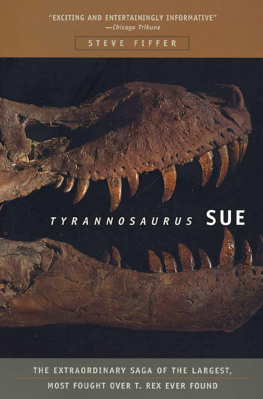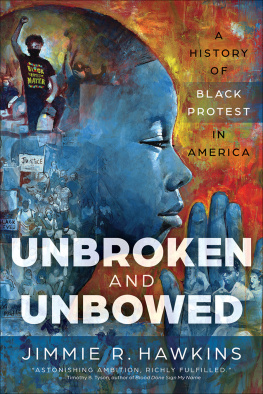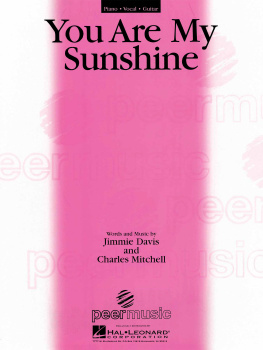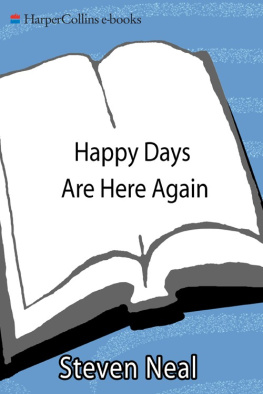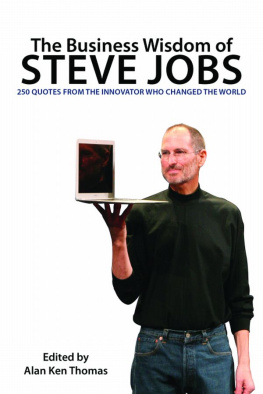Fiffer Steve - Jimmie Lee & James: Two Lives, Two Deaths, and the Movement that Changed America
Here you can read online Fiffer Steve - Jimmie Lee & James: Two Lives, Two Deaths, and the Movement that Changed America full text of the book (entire story) in english for free. Download pdf and epub, get meaning, cover and reviews about this ebook. year: 2015, publisher: Regan Arts., genre: Detective and thriller. Description of the work, (preface) as well as reviews are available. Best literature library LitArk.com created for fans of good reading and offers a wide selection of genres:
Romance novel
Science fiction
Adventure
Detective
Science
History
Home and family
Prose
Art
Politics
Computer
Non-fiction
Religion
Business
Children
Humor
Choose a favorite category and find really read worthwhile books. Enjoy immersion in the world of imagination, feel the emotions of the characters or learn something new for yourself, make an fascinating discovery.

- Book:Jimmie Lee & James: Two Lives, Two Deaths, and the Movement that Changed America
- Author:
- Publisher:Regan Arts.
- Genre:
- Year:2015
- Rating:4 / 5
- Favourites:Add to favourites
- Your mark:
- 80
- 1
- 2
- 3
- 4
- 5
Jimmie Lee & James: Two Lives, Two Deaths, and the Movement that Changed America: summary, description and annotation
We offer to read an annotation, description, summary or preface (depends on what the author of the book "Jimmie Lee & James: Two Lives, Two Deaths, and the Movement that Changed America" wrote himself). If you haven't found the necessary information about the book — write in the comments, we will try to find it.
Fiffer Steve: author's other books
Who wrote Jimmie Lee & James: Two Lives, Two Deaths, and the Movement that Changed America? Find out the surname, the name of the author of the book and a list of all author's works by series.
Jimmie Lee & James: Two Lives, Two Deaths, and the Movement that Changed America — read online for free the complete book (whole text) full work
Below is the text of the book, divided by pages. System saving the place of the last page read, allows you to conveniently read the book "Jimmie Lee & James: Two Lives, Two Deaths, and the Movement that Changed America" online for free, without having to search again every time where you left off. Put a bookmark, and you can go to the page where you finished reading at any time.
Font size:
Interval:
Bookmark:
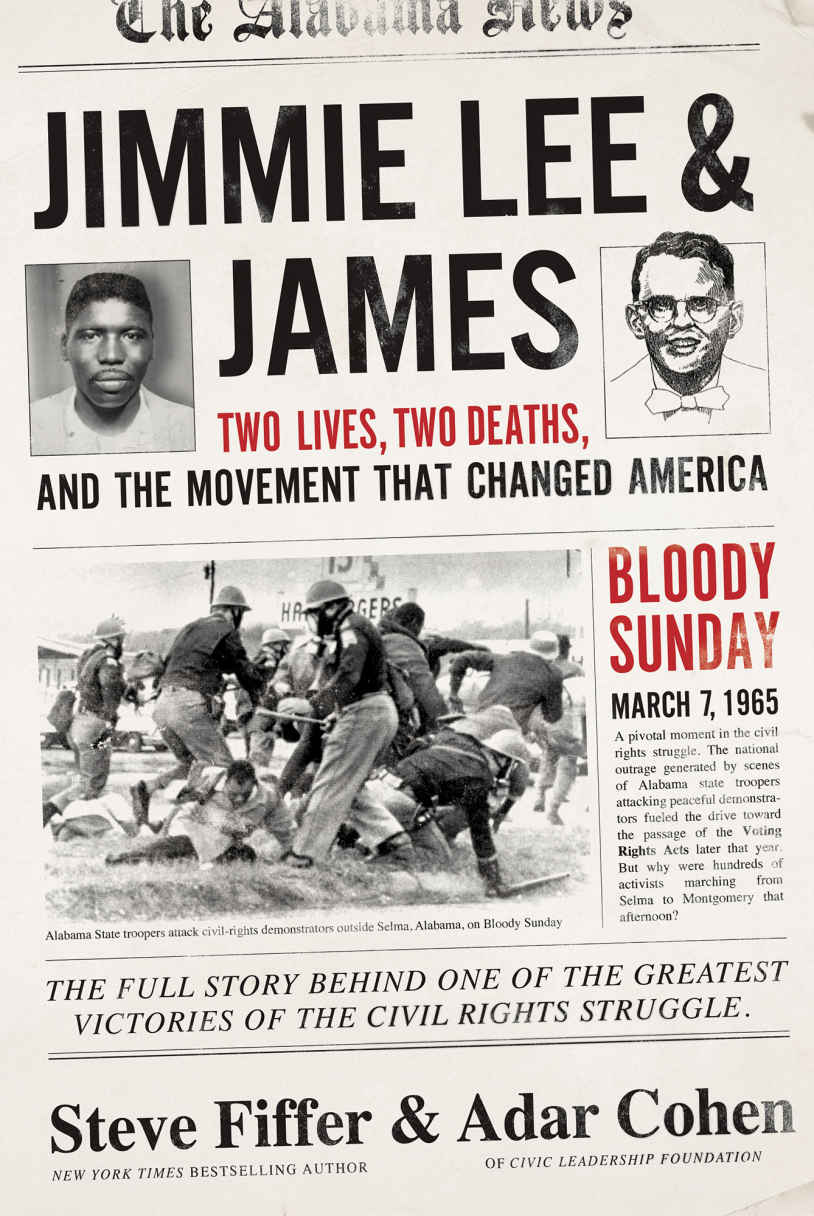

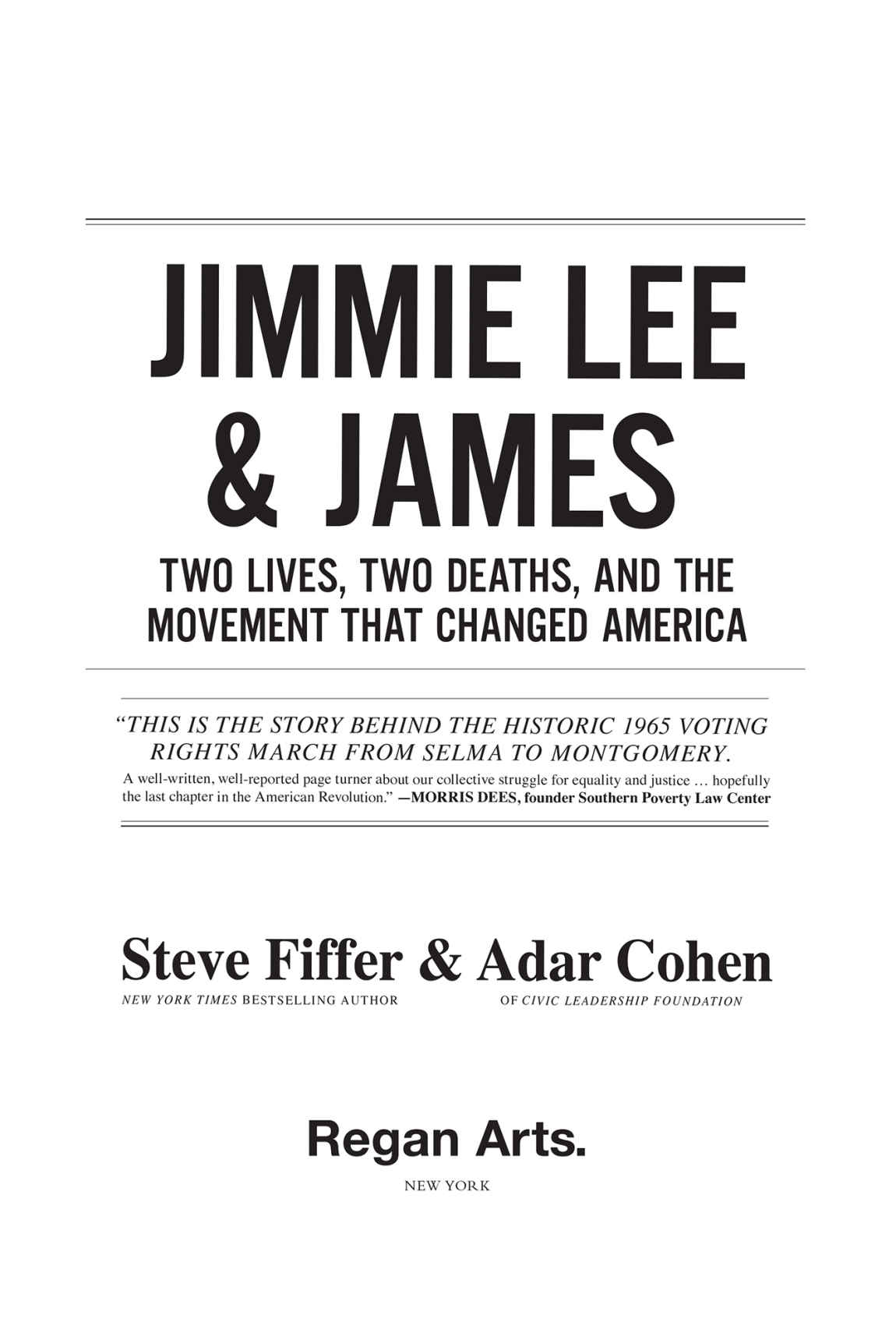
To those who marched, and those still marching.
It was the killing of Jimmie Lee Jackson that provoked the march from Selma to Montgomery. It was his death and his blood that gave us the Voting Rights Act of 1965.
CIVIL RIGHTS LEADER AND U.S. REPRESENTATIVE JOHN LEWIS
Dr. Kings murder was the most momentous among those of the dozens who died in the cause of civil rights for African-Americans. While all could be said worthy of remembrance, one in particular the Rev. James Reeb may be worth recalling now, because the events surrounding his death helped hasten passage of the federal Voting Rights Act, a crowning achievement of the civil rights movement.
NEW YORK TIMES RELIGION JOURNAL COLUMNIST GUSTAV NIEBUHR
O ver the years, many award-winning journalists and respected scholars have written about the march from Selma, Alabama, to the state capital of Montgomery and the passage of the Voting Rights Act of 1965. As the fiftieth anniversary of these historical landmarks approached, we sought a fresh way to consider the movement that changed America. We eventually decided to focus on the foot soldiers of the day, the largely unknown men, women, and children who were willing to put their lives on the line to win the right to vote and, with that right, the opportunity to change their circumstances. Two of those individuals, Jimmie Lee Jackson and James Reeb, were killed within two weeks of each other. We believe that the lives and deaths of these two men are key elements in a powerful story about America and American justice, then and now.
To tell this story, we traveled to Selma, Montgomery, and nearby Marion to talk with many of the men and women who participated in the movement, and we interviewed dozens of others, including witnesses to the murders of Jackson and Reeb. We secured hundreds of pages of FBI documents, as well as private papers and diaries. We read memoirs and oral histories by civil rights leaders and lesser-known figures from the era, along with countless newspaper and magazine articles. Not surprisingly, the accounts of particular events from all these sources are often at odds with one another: People see things differently as they happen; memories change over the years. We have striven to reconcile these different accounts and write a book that is as factually accurate as possible.
We have also worked to reconcile the struggle for racial justice during the tumultuous days of 1965 with contemporary events. Today, persistent poverty, unprecedented rates of incarceration, and access inequalities disproportionately afflict African Americans. As we wrote, protests over the use of excessive force by the police in the deaths of Michael Brown, Eric Garner, and many other African American men were widespread as the country stumbled into a new installment in the conversation about race, justice, and racial injustice.
Quieter but no less destructive developments are afoot. The same voting rights Jimmie Lee Jackson, James Reeb, and so many others struggled and even died to secure are now being undermined or undone.
It is our hope that this book can help us remember the great promise of American democracythat everyone has a voice, that everyone can participateand in honoring two of its heroes, recommit us to its promise.
I dont remember how many times I pulled the trigger, but I think I just pulled it once, but I might have pulled it three times. I dont remember. I didnt know his name at the time, but his name was Jimmie Lee Jackson. He werent dead. He didnt die that night. But I heard about a month later that he died.
JAMES BONARD FOWLER
March 6, 2005
T he Anniston Star is barely off the presses, and Michael Jacksons phone is already ringing. Did you see what Fowler said? What are you going to do about it? Can you reopen the case?
Jackson has been in office for only two months, but as the first African American elected to serve as district attorney in the west-central Alabama jurisdiction that includes Selma and Marion, the town of 3,800 where state trooper James Bonard Fowler shot Jimmie Lee Jackson (no relation) forty years earlier, the forty-one-year-old prosecutor has heard the story of the death that changed the civil rights movement:
How, since the beginning of 1965, blacks in Selma and Marion, with the help of Dr. Martin Luther King and the Southern Christian Leadership Conference (SCLC), had intensified their efforts to win the right to vote.
How, on the night of February 18, 1965, state and local police turned off the streetlights in Marion and, along with deputized white citizens, attacked scores of men and women as they marched out of Zion United Methodist Church to peacefully protest the arrest of SCLC organizer James Orange.
How, in the chaos that followed, many were beaten as they knelt in prayer, while others hid under cars to avoid billy clubs and baseball bats, and still others sought refuge in nearby Macks Caf.
How, when one of those who had been in the church, Jimmie Lee Jackson, entered Macks in search of his injured eighty-two-year-old grandfather, he saw his mother wrestling with an Alabama state trooper and rushed to her defense.
How the trooper shot Jimmie Lee in the stomach.
How Jimmie Lee ran out of the caf and was immediately attacked by several white men, including, it was believed, other police.
How the wounded and beaten 26-year-old farmer and pulpwood chopper was left on the street to die.
How he was finally taken to a hospital in Marion and then to a hospital in Selma, where he passed away eight days later.
How Dr. King eulogized him at a funeral attended by thousands of outraged African Americans and a handful of whites.
How his death directly inspired the march from Selma to Montgomery for voting rights for blacks.
How, five months later, Congress passed one of the most important pieces of legislation in U.S. history, the Voting Rights Act of 1965.
And how, despite eyewitness testimony to the contrary, state and federal grand juries had accepted James Bonard Fowlers explanation that he had been acting in self-defense when he shot Jackson, and had refused to indict the trooper.
District Attorney Jackson also realizes that it is almost impossible to mount a case forty years after the fact. Witnesses are dead or impossible to find, or they no longer remember enough to be reliable. Documents, if there ever were any to begin with, are long gone. Potential jurors dont necessarily have the stomach to send an aging man to prison for something he may have done so many years earlier.
Still, Fowlers remarks are so offensive that they have reopened an old wound. Its not just that he reveals he never cared enough to inquire about the health of the man he shot. Its not that he boasts, I dont think legally I could get convicted for murder now... cause after forty years there aint no telling how many people is dead. No, speaking publicly for the first time since the shooting, the seventy-one-year-old retired trooper has shared deeper, darker thoughts with the Star s editor at large, John Fleming. His pronouncements include:
[Blacks] always fared better when they stayed in their place.... I think that segregation was good, if it were properly done. Now, you got to give equal funds and they got to be handled right. I dont believe in completely mixing the races. I dont think that is gonna help anything....
Font size:
Interval:
Bookmark:
Similar books «Jimmie Lee & James: Two Lives, Two Deaths, and the Movement that Changed America»
Look at similar books to Jimmie Lee & James: Two Lives, Two Deaths, and the Movement that Changed America. We have selected literature similar in name and meaning in the hope of providing readers with more options to find new, interesting, not yet read works.
Discussion, reviews of the book Jimmie Lee & James: Two Lives, Two Deaths, and the Movement that Changed America and just readers' own opinions. Leave your comments, write what you think about the work, its meaning or the main characters. Specify what exactly you liked and what you didn't like, and why you think so.

